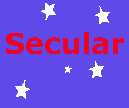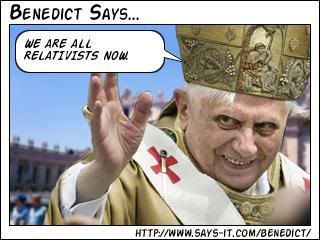Election '07: What's in it for secular democracy?
You will be aware by now that a federal election has been called for November 24th--an election anticipated with a faint whiff of hope by those of us on the latte left, and undoubtedly with dread by those on the Nescafe right. (A recent poll indicates that Labor has an eighteen-point start on the Coalition.)
Now, the reasons for voting out the Coalition government are manifold: Workchoices, the underfunding of public education, teacher-bashing, material support for the Burmese military junta's repression of pro-democracy groups, homophobic marriage laws (and opposition to civil partnership legislation), its disgusting treatment of asylum seekers, its equally disgusting policy on African refugees, the politicisation of the public service, the injustices meted out to David Hicks and Mohammed Haneef, the AWB scandal, and the intimidation and attempted silencing of its critics. By no means is that list exhaustive--I'm sure you can think of more reasons.Actually, I can. There can be no doubt that the Howard years have been--to say the least--detrimental to the health of liberal democracy in Australia. And one the main vehicles of the Howard Government's assault on liberal democracy has been its alliance with the religious right--modelled, surely, on a similar alliance between the GOP and the (Christian) religious right in the US that, until the 2006 Congressional elections, proved to be a successful formula. The alliance has manifested itself overtly at times: Government figures falling over themselves to address megachurch congregations and endorse Christian Right initiatives like the National Day of Thanksgiving. (Sadly, Labor figures have also jumped on the bandwagon.) At other times, the religion-baiting has been more subtle: witness the "values debate" regarding public schools, for instance, or the school chaplaincy programme. Furthermore, the Howard Government has not been above backroom deals with sects at the more extreme and ultraconservative ends of the Catholic and Protestant spectra: Opus Dei and the Exclusive Brethren.
Surely, for the secularist, there can be no question regarding who not to vote for on November 24th. But how secular-friendly--and therefore how democracy-friendly--are some of the other parties?
Labor: On various issues--most notably the 2004 Federal ban on same-sex marriage--Labor has marched in lockstep with the Howard Government, and has been--probably for reasons of political expediency (though Labor still got its arse handed to it on a plate in the 2004 election)--equally keen to kowtow to Christian fundamentalists. Kevin Rudd, however, has sought to reposition, or perhaps re-emphasise Labor as a party of the religious left: his Monthly article "Faith and Politics", besides marking his own entrance onto the main stage of the Australian political scene, brilliantly undermined the dominance of conservative voices in Australian Christianity by reminding Christians of the social-justice traditions of their faith. (And in retrospect, his appearance at the Australian Christian Lobby's Fundython in August probably needs to be seen in that light.) If The Australian's Paul Kelly is to be believed, a Rudd Labour government--given the willingness of its leader to wear his Christianity on his sleeve--does not bode well for secularism in Australia. But I don't know. I daresay that, on the whole, the religious left is certainly more secular-friendly than the religious right--despite the boneheaded remarks of Jim Wallis--and Rudd's brand of religio-politics would surely be an improvement over the Howard model (and a damn sight more cerebral).
The Greens . . . well, it is difficult to find much on the Greens wrt secularism, and that is probably a good sign. They are strongly in favour of abortion rights, stem cell research, and LGBT rights, for starters, and as a consequence have found themselves the subject of attacks by the Christian Democratic Party, Family First , the Catholic magazine AD2000, Sydney Anglicans and the Exclusive Brethren. Their education policies in particular are--on the whole--sensible and fair, but I'm especially impressed by their call to "extend to private schools the anti-discrimination measures that apply in public schools." Two thumbs up.
The Australian Democrats: Of the "major" minor parties, the Australian Democrats stand alone in openly advocating the separation of church and state. They have also called for a Bill of Rights. Therefore: three thumbs up, since on many other issues that have some bearing on secularism or the relationship between religion and politics, their policies are very similar to the Greens'.
Family First: Erm . . . how did they get in there?
One Nation: What the hey?
I should also give a shout-out to the Secular Party of Australia, which will be running for Senate election in the upcoming election.
Fun fact: A 2006 study found that "Less than half Australia’s young people say they believe in a god, and many believe there is little truth in religion."

















|